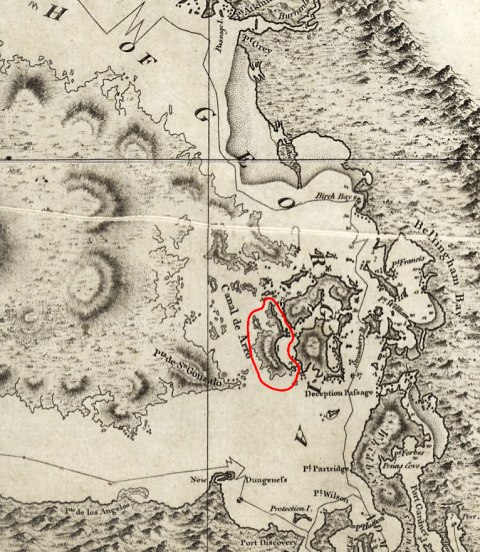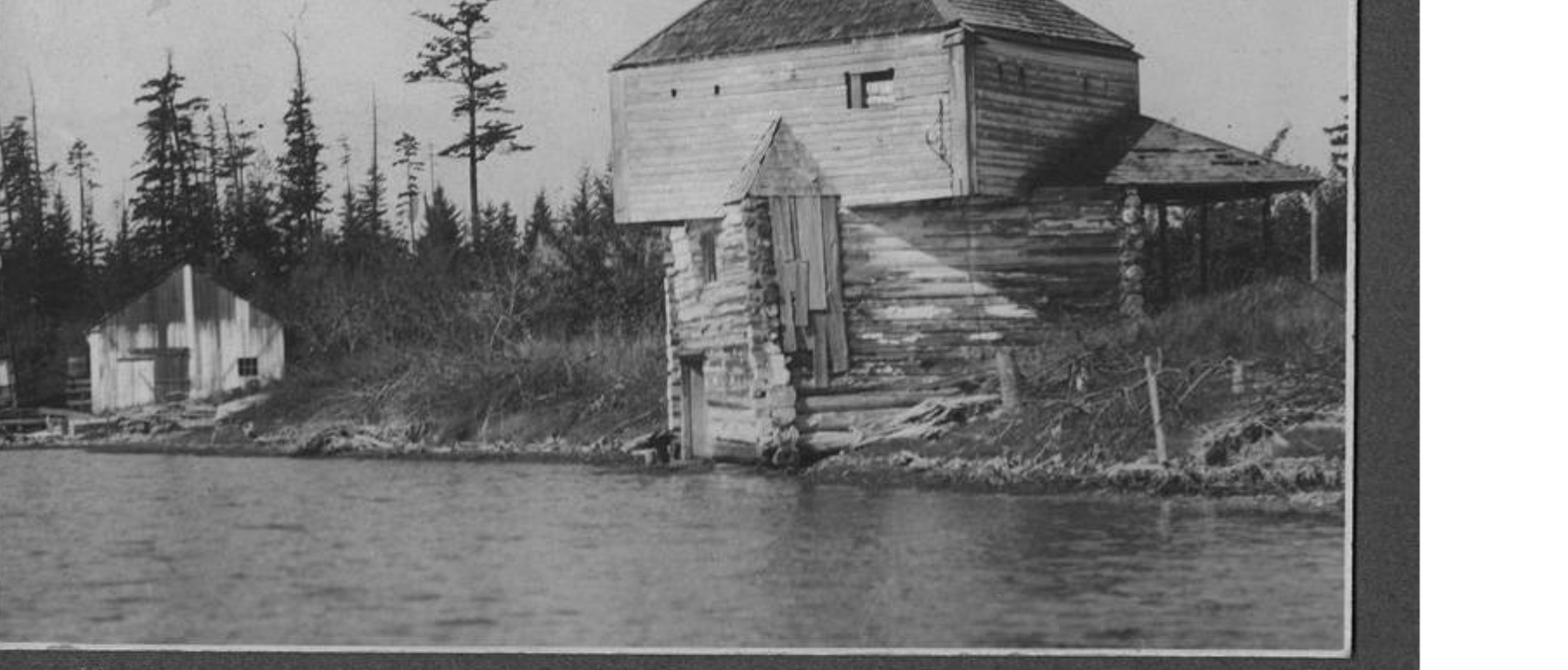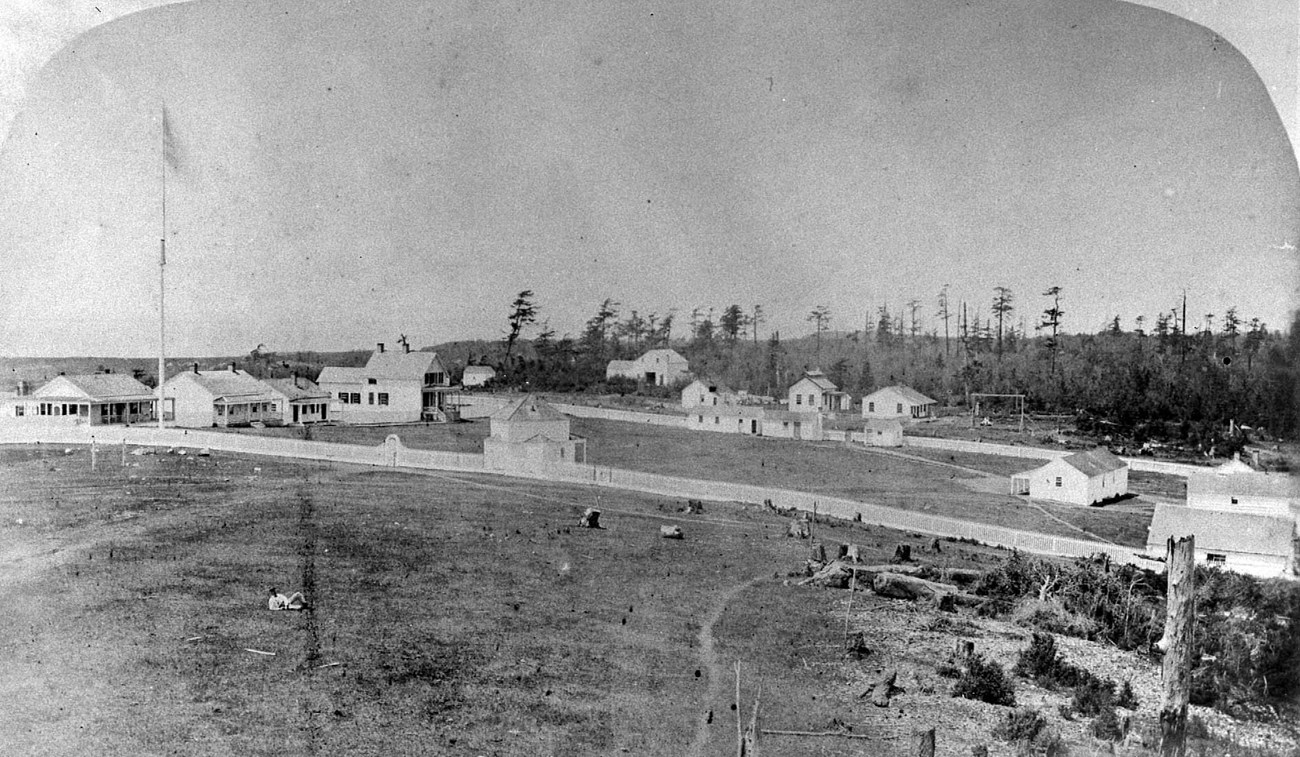The Pig War originated from a border dispute between the United States and British Canada, specifically over the San Juan Islands. The tension grew from the 1846 Oregon Treaty that established the 49th parallel as the boundary, but the exact division in the San Juan archipelago was unclear. This ambiguity created a fertile ground for conflict, which escalated when an American settler shot a pig belonging to a British subject.

Map showing the disputed territory during the Pig War. Credit: Historic UK
The actual incident that sparked the Pig War occurred on June 15, 1859, when Lyman Cutler, an American farmer, killed a pig that was foraging in his potato patch. The pig belonged to Charles Griffin, a British employee of the Hudson’s Bay Company. The shooting of the pig led the British to send warships to the area, prompting the Americans to also send troops, leading to a tense military standoff.

Historical photo from the Pig War era. Credit: National Park Service
In response to the pig incident, both the United States and British forces mobilized military personnel to San Juan Island. The U.S. Commander, George Pickett, and British naval commander, Robert Lambert, both prepared their forces for potential conflict. However, both sides exhibited restraint, leading to a bloodless confrontation without any shots fired between the two armies.
The crisis was peacefully resolved through negotiations, and in October 1859, both sides agreed to a joint military occupation of the islands. This arrangement lasted until 1872, when the dispute was finally settled, and the San Juan Islands were awarded to the United States after arbitration by Germany, highlighting a successful diplomatic resolution to what could have been a significant military conflict.

Modern day San Juan Island National Historical Park. Credit: San Juan Journal
The Pig War, while seemingly trivial, highlights how minor incidents can escalate into larger conflicts. It serves as a reminder of the importance of diplomacy and communication in international relations. Today, the event is commemorated in the San Juan Islands, which are seen as a symbol of peaceful conflict resolution and the importance of understanding borders and territorial claims.
Categories: American History, British History, Diplomatic History, International Relations, Military History, War History
Tags: Border Dispute, Diplomatic Resolution, Historical Event, Military History, Pig War, San Juan Islands, US-British Relations
Religion: Not applicable
Country of Origin: Canada, United Kingdom, United States
Topic: Military History
Ethnicity: Not Applicable


